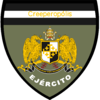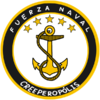Rubicon War
| Rubicon War | |||||||||
|---|---|---|---|---|---|---|---|---|---|
| Part of the Salisfordian Civil War and Creeperian Conflicts | |||||||||
| |||||||||
| Belligerents | |||||||||
|
|
| ||||||||
| Commanders and leaders | |||||||||
The Rubicon War (Creeperian Spanish: Guerra del Rubicón; Salisfordian: Guerra del Rubicone) was a war which occurred in to phases between 1961 and 1976.
Overall, about 5,504 Creeperan soldiers and 4,074 Arcadians were killed in the war which ended without any territorial changes. Despite the Creeperan victory, the war unified the Arcadian public under the new regime, and served as a propaganda victory.
Contents
Background
Easter Offensive
Initial advance
At 0400 hours local time on 12 April 1962, Arcadian artillery began to fire on Creeperan border patrol positions. The bombardment lasted just under two hours, and at 0600 hours, the Second Army under Julio Moronetta and the Third Army under Benito Dallolio crossed over the border into Cantoño. By sunset on 12 April, Arcadian forces had pushed inwards nearly 25 miles and routed Creeperan opposition, mostly border guards and local police. Opposition to Arcadian forces advancing remained.
The Creeperan Third Army under Raimundo Serrano Suñer began to mobilize on 14 April. Arcadian forces continued to drive deeper and deeper into the department. By mid-September, Arcadian forces had routed Creeperan forces from the eastern third of the department. Despite Serrano Suñer's best efforts, the Third Army remained disorganized. On 2 December, close to 500 Creeperans were killed to just 250 Arcadians in a battle over a small nameless hamlet roughly 20 miles from Guiraiso. Despite the relatively small casualties, the sight of an elite Creeperan regiment retreating led most of the disorganized army to fall back. Serrano Suñer and his forces decided the make a stand at Guiraiso.
Capture of Guiraiso
On 17 December, Arcadia's Third Army under General Dallolio reached the outskirts of Guiraiso and began bombarding the city. The Creeperan forces, with low morale and less equipped than the Arcadian forces, attempted to make a stand in the city. Heavy fighting ensued in the city center. The town hall formed a linchpin of the Creeperan line, due to its strong defendable position and solid walls. On 20 December, white phosphorus caught the town hall on fire. At the same time, an Arcadian shock troops division captured the water treatment plant and cut off the water supply to the city. Unable to put out the fire, the town hall began to burn out of control. With the linchpin of their defense burning, Creeperan forces retreated and attempted to form another defensive line centered on the local chamber of commerce building. Without a solid point in their line, the Creeperans were forced to abandon Guiraiso to the Arcadians on 25 December. Nearly 2,000 Creeperans were killed compared to just over 1,000 Arcadians over the course of the battle. With Guiraiso in Arcadian hands, the road lay open to the departmental capital of Puerto del Bahía de Salvador.
Siege of Puerto del Bahía de Salvador.
With the fall of Guiraiso, Arcadian forces were able to advance to within 20 miles of Puerto Bahía by 1 January. Outnumbered by the Creeperan forces, the Arcadians elected to surround the city on three sides and use air forces and artillery to cut the logistics of the Creeperan forces, while flanking them with river crossing. General Dallolio made the mistake of regrouping 20 miles away from the city outskirts, believing the Creeperans to be defeated. However, the Creeperans used the time to regroup and set up defenses. When the Third the Arcadians were unable to put troops on the western bank of the Lempa River. What was meant to be a quick assault turned into a long siege.
Both sides stood at a stalemate, with Creeperan forces controlling the western bank while the Arcadians controlled the eastern bank, which mostly consisted of unimportant residential areas and the outskirts of the city. The lines remained relatively unchanged, with small skirmishes breaking out. From February until 1 May, this would be the status quo of the war.
Creeperan counterattack
Retreat to and Siege of Guiraiso
On May 1st, 1963 Creeperan forces advanced against the Arcadian lines. In a slow grinding advance, Dallolio's army was forced to fall back nearly 15 miles on the first day. Dallolio would be killed by artillery on the fourth day of the offensive, May 4th leaving the army under the control of General Gentile. Gentile, a much more competent commander, managed to halt the Arcadian retreat by May 10. Forced on the defensive, the Arcadian forces began to enact scorched earth tactics. Despite the much more competent Arcadian defense, Creeperan armor units, outnumbering their Arcadian counterparts by nearly 2 to 1, sliced through the Arcadian lines time and time again. By August, the Arcadians were pushed back to Guiraiso.
Creeperan Border War
In January of 1964, facing stalemate outside Guiraiso, Creeperan military officials decided to utilize their much larger manpower reserves and open another front. On January 3, 1964, Creeperan forces invaded border towns in Arcadia. Despite the small size of the force, just 5000 soldiers, and the small casualty count, just 500 dead on the Creeperan side and 200 dead on the Arcadian side. A major embarassment to the Arcadian leadership, the offensive ruined Arcadian support for the war.
Peace
Realizing that Creeperopolis had too large a manpower pool for the Arcadian forces to compete with and that public support for the war was evaporating. The war was billed as a single knockout punch to force Creeperan capitulation and take the territory back. However, given the Creeperan invasion in 1964, it was clear that the war would not end any time soon. By January 29, it was decided that Arcadia would seek peace terms. Approaching Creeperopolis through the Salisfordian embassy, Arcadia sued for peace by status quo antebellum.
At the same, the Creeperan public was growing restless with the inability of the Creeperan forces to dislodge the Arcadian forces from the department. This resulted in the Creeperan government accepting the Arcadian offer for peace on February 5.
On February 10, an armistice agreement was signed between the two sides, returning to status quo antebellum.
Aftermath
The war had profound effects on Arcadia. Despite the Declaration of the New Order having taken place 13 years earlier, it remained a polarizing aspect of Arcadian politics. The war provided a common foe for the country and despite the failure of Arcadia to accomplish its stated goals, the images of New Order Leadership next to Arcadian troops made the government appear more legitimate and led to greater acceptance of the new regime.









